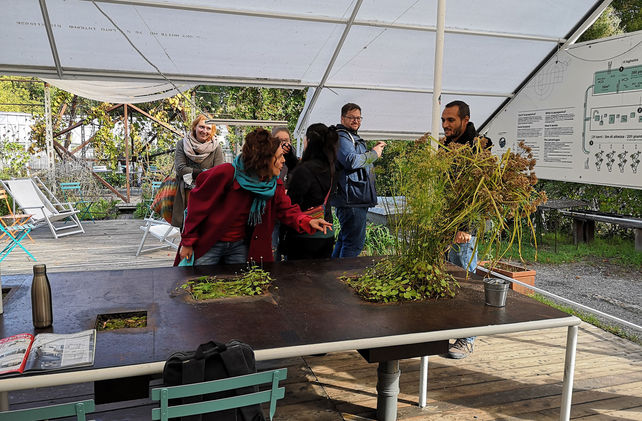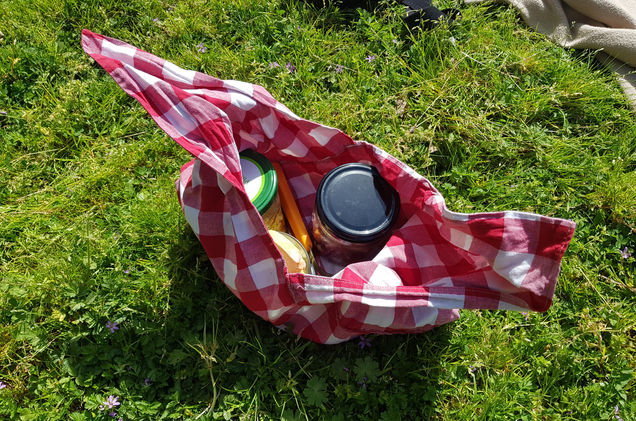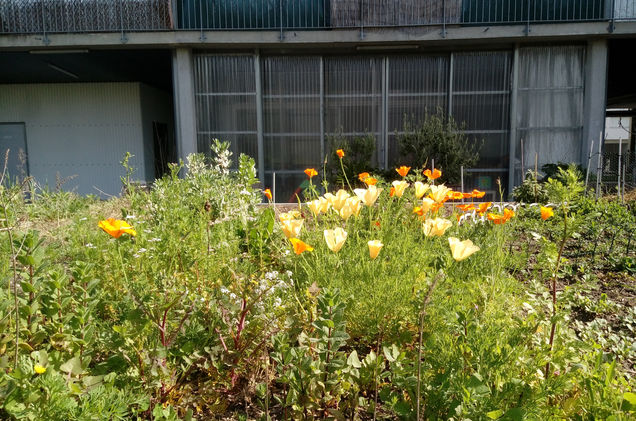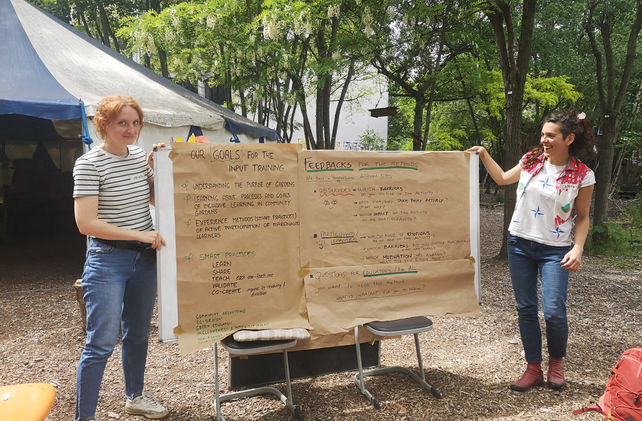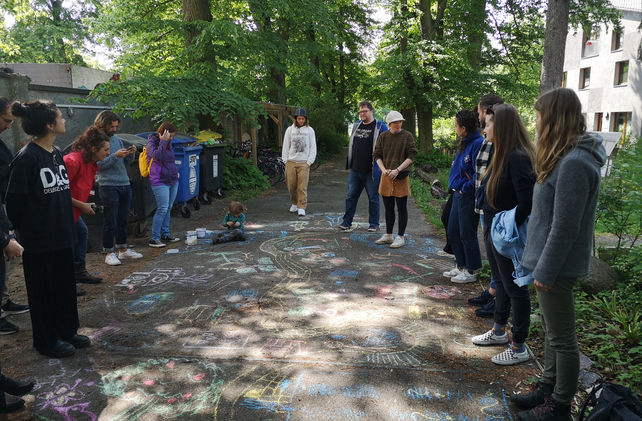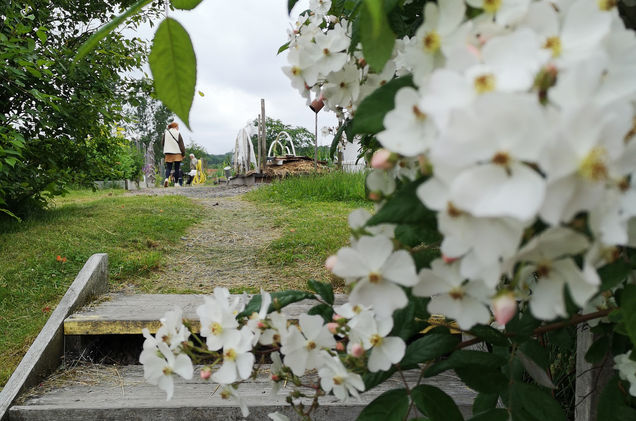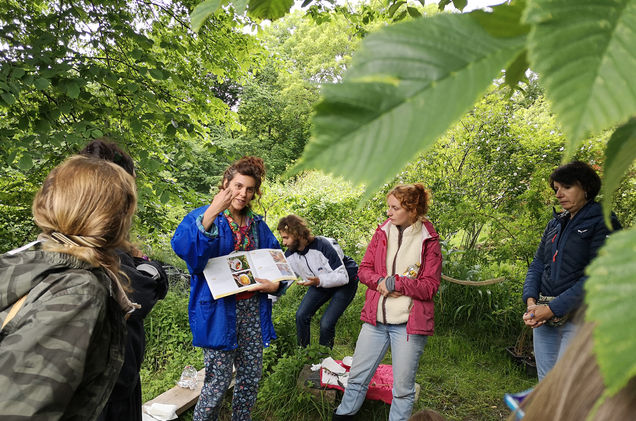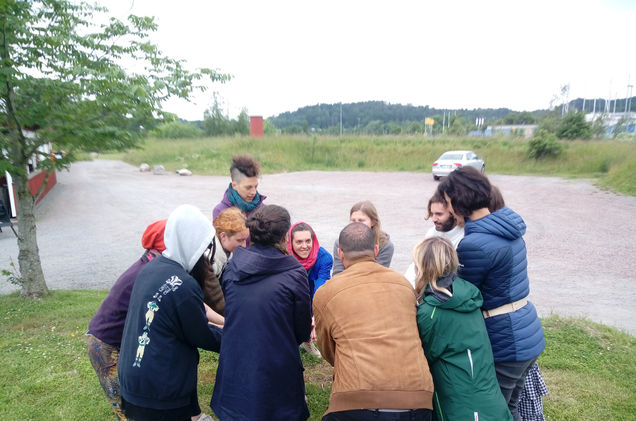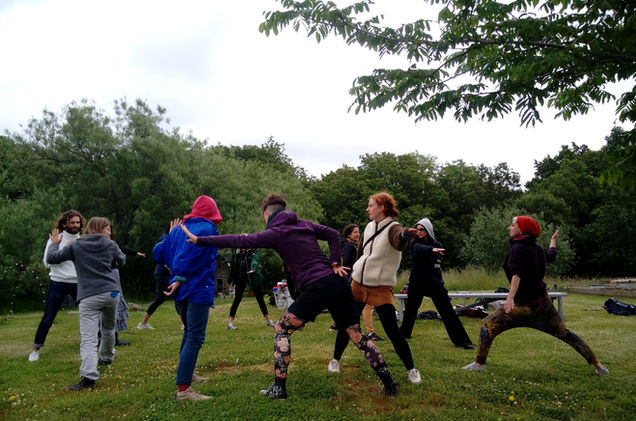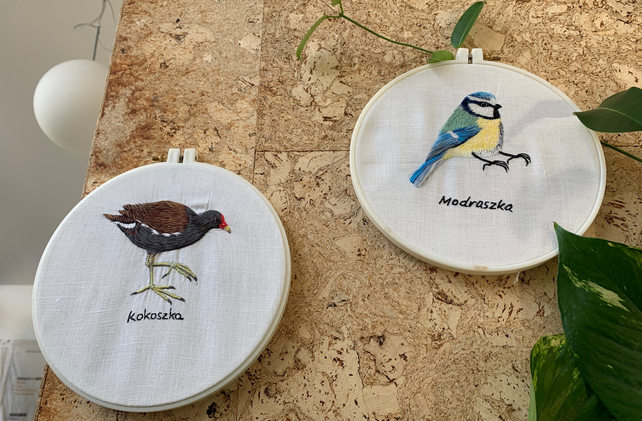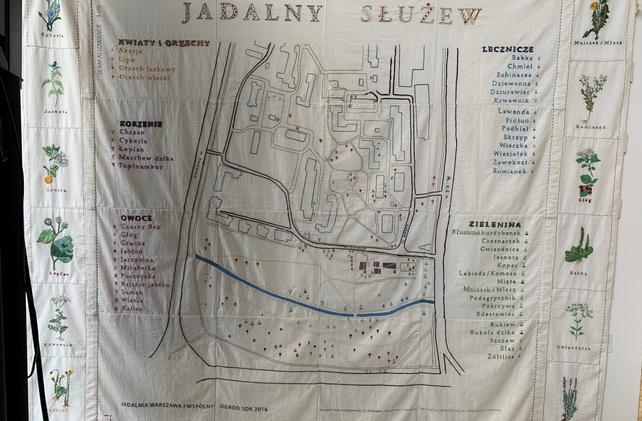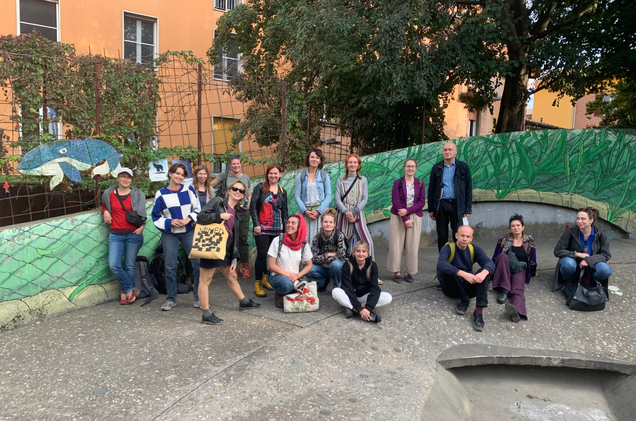Berlin
1st transnational meeting
After a difficult time of the pandemic, we finally had an opportunity to meet in Berlin. We have visited several community gardens, such as Himmelbeet, ElisaBeet Garden located inside of St.Elisabeth II cemetery, and Rote Beete, which was established with the support of Centre Francais de Berlin.
Community gardens can be barrier-free and inclusive places that encourage disabled users to participate in gardening activities. We had a chance to build a wheelchair-accessible raised bed in the ElisaBeet garden together with TUML, a project by and for people with and without disabilities interested in urban gardening, sustainability and environmental protection.
Kraków
2nd transnational meeting
Our second transnational meeting started at the SYMBIOSIS Center of Ecological Education, where we saw an interactive exhibition about the local flora and fauna. We also had an opportunity to explore a "secret garden" created in the courtyard of the historical building of the Municipality of Krakow, and an urban farm led by All In Foundation in Kleparski Park.
The highlight of the trip was a visit to one of the schools participating in the project “School with Class” run by the Krakow Greenspace Authority where we had a chance to learn more about hortitherapy for kids with special needs.
Bologna
3rd transnational meeting
Next stop - Bologna. Beautiful Italian weather allowed us to exchange experiences. First of all, we got to know the activities of our partners from Kilowatt, who run their business in the green heart of Giardini Margherita. Activities offered to the local community include a vegetable garden with a hydroponic growing system, a co-working space, a kindergarten and many cultural and integrational events.
Thanks to our visit, we were able to learn about the activities of Forno Brisa bakery, whose business system is based on harmony with nature and the local community and we visited Baumhaus cooperative with the surrounding park.
Bordeaux
4th transnational meeting
On the first sunny days of spring, we met again. This time at the Grand Parc community gardens of Bordeaux. The neighbourhood was founded in the 60s, and many of the habitants could for the first time co-share gardens. There was a wide range of different community gardens for us to see. From collective and individual plots to allotment gardens and an educational urban farm within the city, and of course, a shared garden whose creation was supported by SaluTerre.
VRAC - a national association which provides affordable quality food all over France is a great example of how to promote and implement
inclusive green education and sustainable food production.
Berlin
Input Training
This Input training was special: we had the chance to test our methods with new experts who have not participated in the programme so far. Thanks to their feedback we could improve our current methods.
We visited the inclusive Garden in Moritzplatz, an inspiring example of how to bring together neighbouring communities. At the Projekthaus Potsdam we learned how they promote social, ecological and inclusive ideas and tested several interactive methods such as ’reclaiming space’ and 'Barriers check'.
The third day felt like a nature retreat: we explored the wonderful place of Ökowerk in the city forest of Grunewald.
Read more here
Gothenburg
5th transnational meeting
On the first day we were guests at Change Makers’ headquarter. Here, Martin Berg from the Municipality of Gothenburg presented us the city farming project promoted by the administration. Then we took the ferry to Färjenäs Forest. Here we had the chance to discuss our publication and than got into the forest to experiment an edible landscape workshop.
We started our second day at Lärjeån Kök & trädgårdar where Vägen ut! cooperative presented to us their project, focused on rehabilitating people through employment in green spaces.
To end our stay, we walked to model farm at Angered Gård (part of the project presented on the first day). Here we passed by the test farming and the Eco Agroforestry Center.
Warsaw
6th transnational meeting
Meeting in Warsaw passed in a very friendly atmosphere. We started with a meeting at the Hoe and Sun community garden, where we met one of the gardeners who told us about the garden's functioning model. That day we also visited the Prague Neighbourhood Garden run by the local Community Centre. On another day we were able to see Zasiejówka, which is a garden run by Zasiej. This is a example of a community garden run on allotment garden. During this day we talked about the importance of seeds and socialised with members of allotment by cooking pumpkin soup together.
Bologna
EduLab
Our second stay in Bologna, Italy, took place in Oct, 2022 - we spent four wonderful bright sunny days, packed with new impressions and mutual learning. From our bolognese home base, the Kilowatt project, we had the chance to visit two other green projects of the city- first the Salus housing project on the outskirts of the city and second the ‘Giardini del Guasto’ right in the very heart of the city. To add to the variety, the former is just beginning and is still not fully in operation, and the latter goes way back, as it was founded in the 1970ies.
We worked on finishing our EBook to be published at the end of the year to provide insights into our work for the public. With lots of inspiration and new ideas, we returned to our homes to continue our work on the project.
Berlin
7th transnational meeting
For this last transnational meeting, we gathered in Berlin in CRN's main office the “Atelier” (in Kameruner Street), in Wedding. We discussed our deliverables: guide, poster, leaflet, website, map and final report. We prepared our “Inclusive Gardens online conference”, where we plan to present our work and talk about inclusive green spaces.
But the highlight of our trip was a visit to the new Himmelbeet space that moved a few months ago and is now situated at the corner of Gartenstraße and Grenzstraße. It was interesting to find out more about the neighbourhood and about all the challenges Himmelbeet had to face while moving their space. Even though it was November garden seem to be evergreen.




































